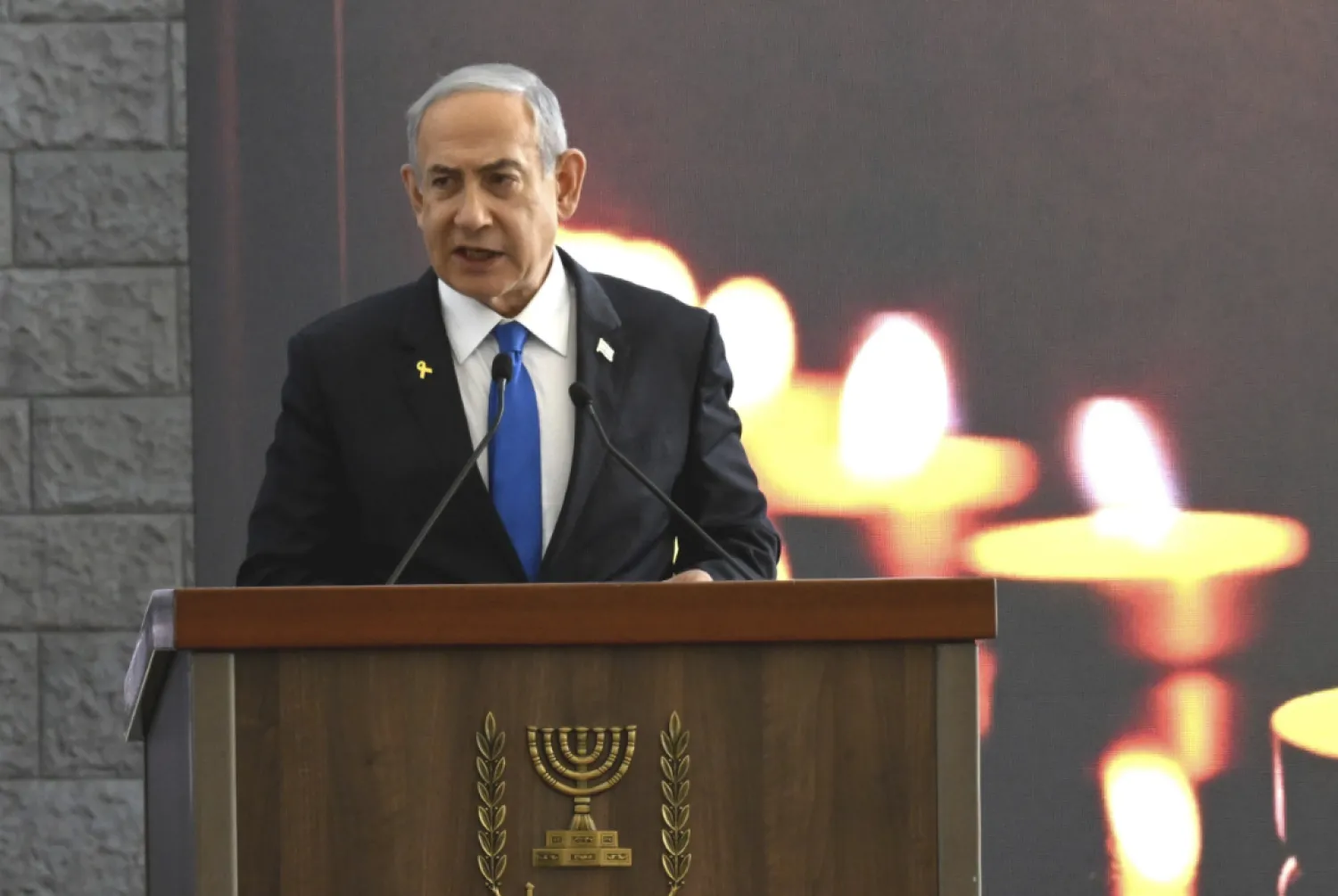An Israeli court on Sunday was considering whether to lift a gag order on a case surrounding suspected leaks of classified information from an associate of Prime Minister Benjamin Netanyahu. Critics say they were aimed at giving him political cover as Gaza cease-fire talks ground to a halt.
Netanyahu has denied any wrongdoing and says no one from his office has been arrested or is under investigation. He has downplayed the affair and publicly called for the gag order to be lifted, according to The AP.
Israeli media reports say the case concerns the leak of classified information to two European media outlets by an adviser who may not have been formally employed and did not have security clearance, without naming the individual.
Netanyahu said the person in question “never participated in security discussions, was not exposed to or received classified information, and did not take part in secret visits.”
The leaked documents are said to have formed the basis of a widely discredited article in the London-based Jewish Chronicle — which was later withdrawn — suggesting Hamas planned to spirit hostages out of Gaza through Egypt, and an article in Germany's Bild newspaper that said Hamas was drawing out the talks as a form of psychological warfare on Israel.
Israeli media and other observers expressed skepticism about the articles, which appeared to support Netanyahu's demands in the talks and absolve him of blame for their failure.
The articles came out as Netanyahu was calling for lasting Israeli control over the Philadelphi corridor along the Gaza-Egypt border, a demand that was first made public over the summer. Hamas rejected the demand and accused Netanyahu of deliberately sabotaging the talks, which have been mediated by the United States, Qatar and Egypt.
The articles also seemed to provide political cover as Netanyahu faced intense criticism from families of the hostages and much of the Israeli public, who blame him for the failure to reach a deal. The criticism reached a fever pitch in early September, with mass protests and calls for a general strike, after Hamas killed six hostages as Israeli troops closed in on them.
A court document confirmed that an investigation by police, the military and the Shin Bet internal security agency is underway and that a number of suspects have been arrested for questioning. It said the affair poses “a risk to sensitive information and sources" and "harms the achievement of the goals of the war in the Gaza Strip."
The court will decide on Sunday whether to lift a gag order on other details of the case.
The leak led to a scandal at the Jewish Chronicle, where prominent columnists resigned in protest over the discredited articles. The London-based newspaper removed the article in question and others by a freelance journalist, saying it was “not satisfied with some of his claims.”
The Bild article suggested Hamas was not serious about the negotiations and was using psychological warfare to stoke Israeli divisions. Netanyahu cited it in a meeting with his Cabinet after it was published.
He again defended the article in a statement released over the weekend, saying it had “exposed the Hamas methods of exerting psychological pressure from home and abroad on the Israeli government and public by blaming Israel for the failure of the talks to release the hostages.”
Netanyahu has sought to blame Hamas, whose Oct. 7, 2023, attack into Israel ignited the war, for the failure of the talks. Hamas, which is still holding scores of hostages, has said it will only release them in exchange for a lasting cease-fire, a complete Israeli withdrawal from Gaza and the release of a large number of Palestinian prisoners.
Hamas says those demands have not changed following last month's killing of its top leader Yahya Sinwar, as the United States, Egypt and Qatar seek to restart the negotiations.
Netanyahu, often described by critics as image-obsessed, is on trial for corruption in three separate cases, two of which involve accusations that he gave favors to media moguls in exchange for positive coverage.
His office has downplayed the latest affair and accused the judiciary of bias, citing the many other leaks over the course of the war. It has also denied the leak in question had any impact on the cease-fire talks.
“The document only helped the effort to return the hostages, and certainly did not harm it,” Netanyahu's office said in a statement Saturday, adding that he only learned about the document when it was publicized.
His critics say the allegations are far more serious.
Yoav Limor, writing in the pro-Netanyahu daily Israel Hayom, called it “one of the gravest affairs Israel has ever known.”
“The damage it caused extends beyond the realm of national security and gives rise to suspicion that the prime minister’s bureau acted to scuttle a hostage deal, contrary to the war’s objectives.”









